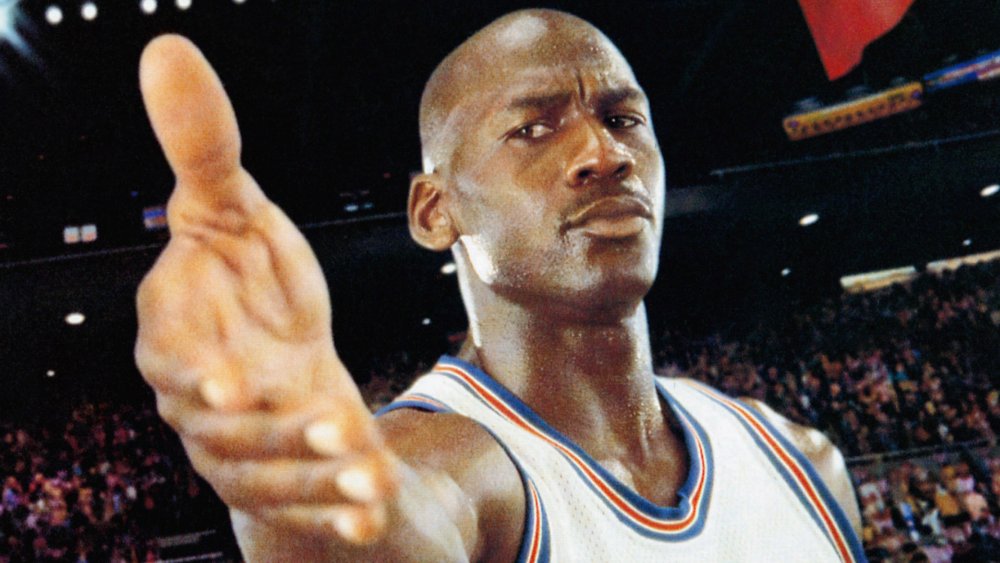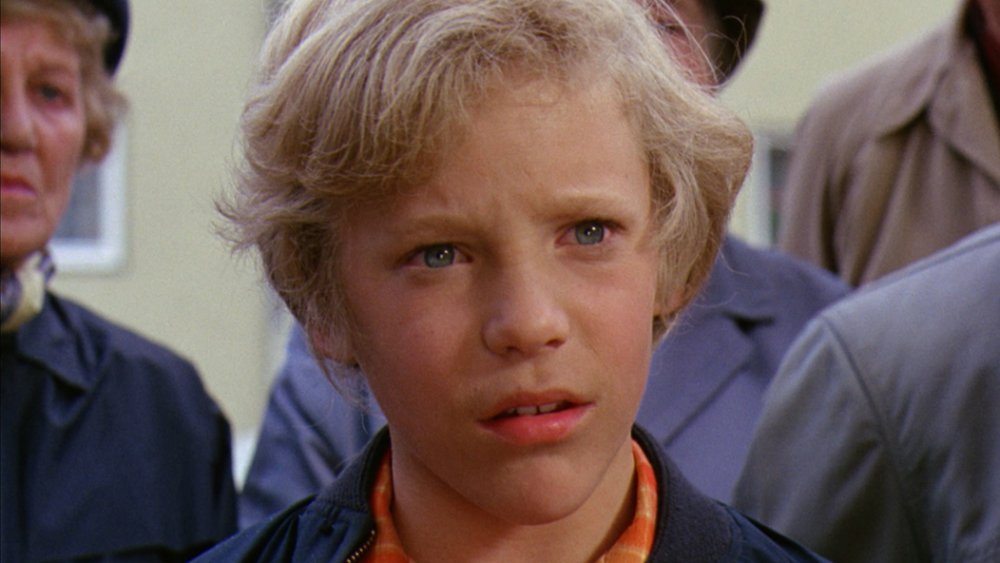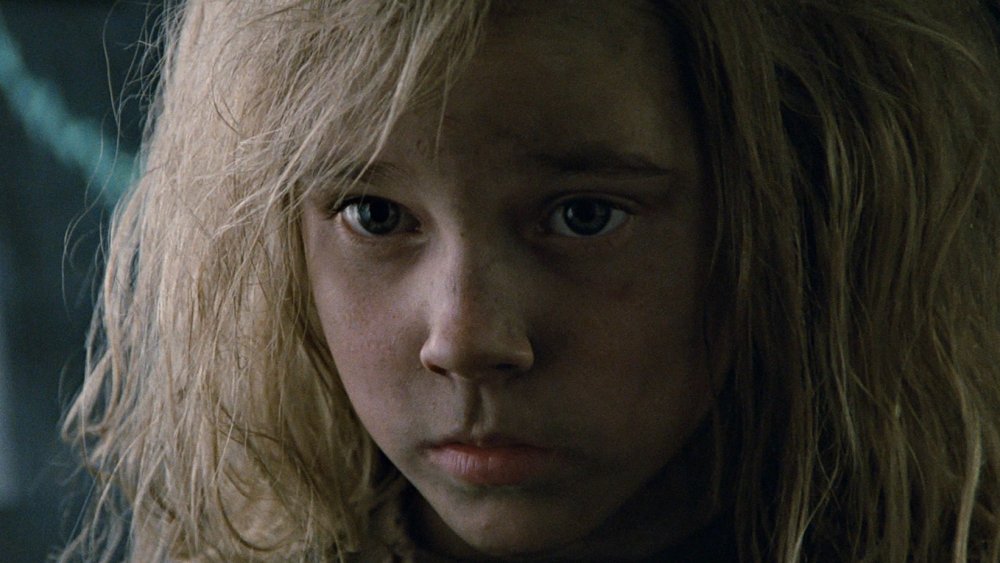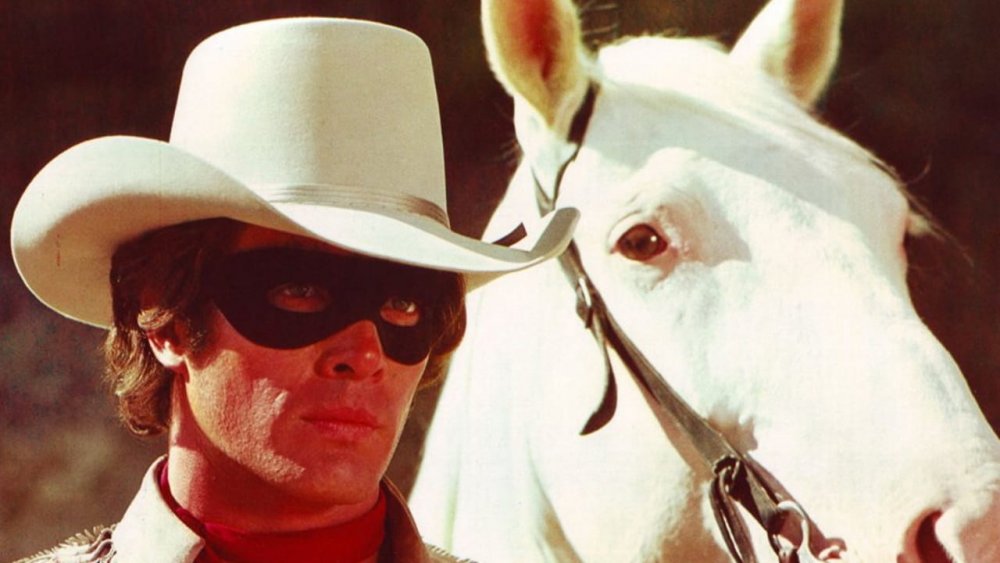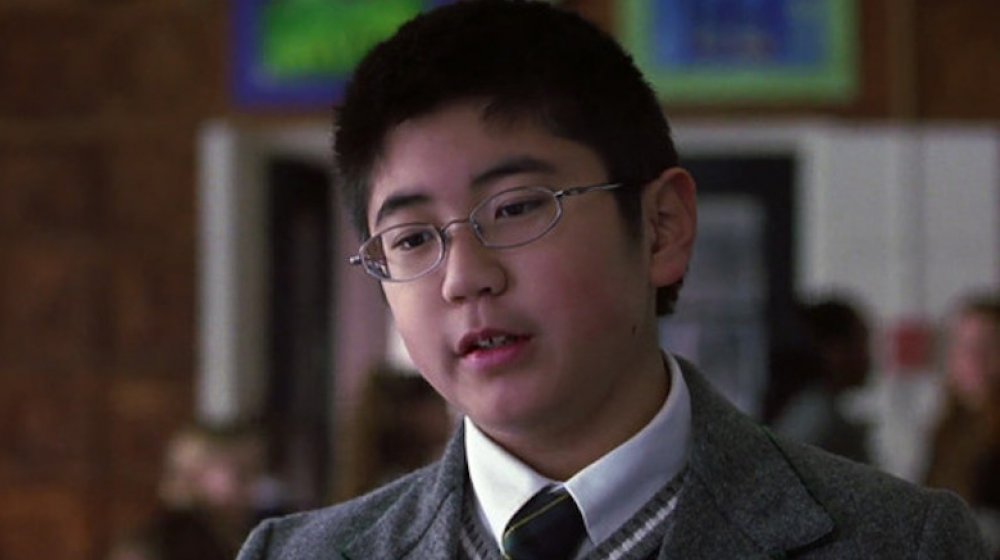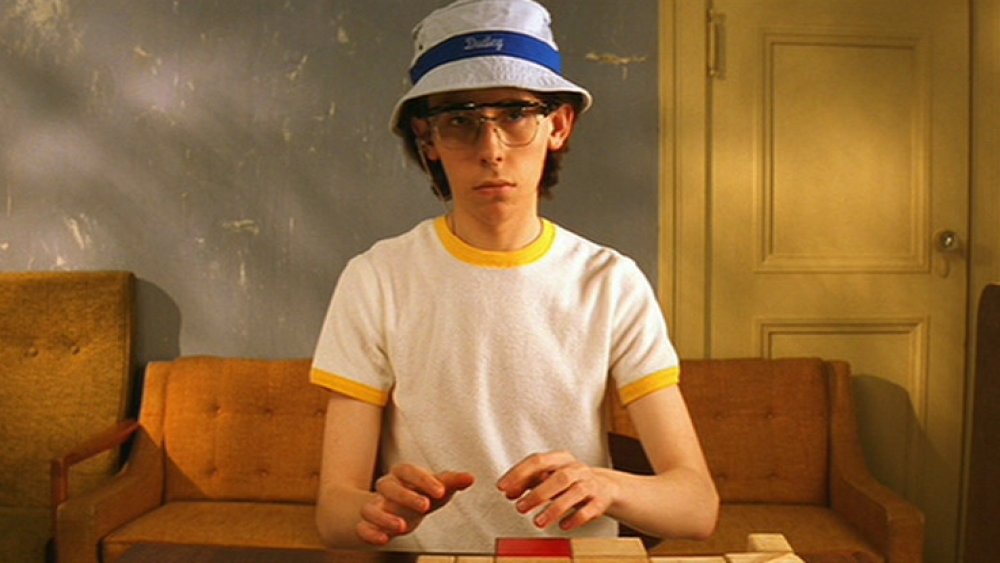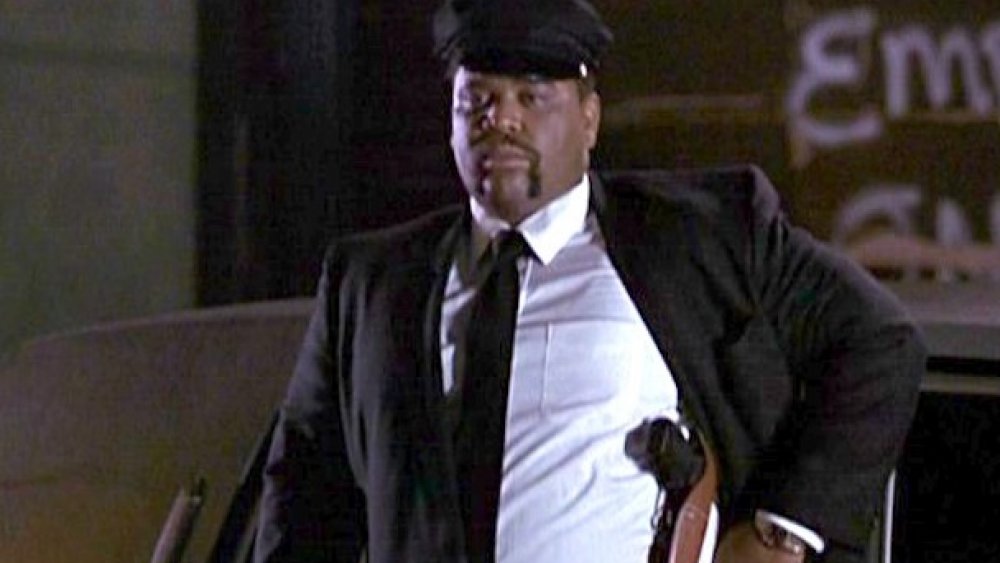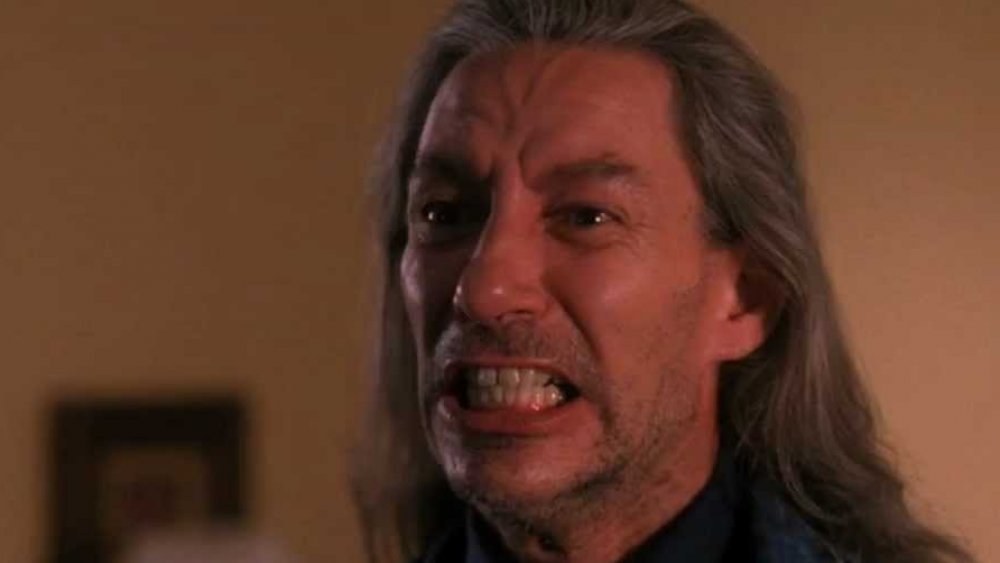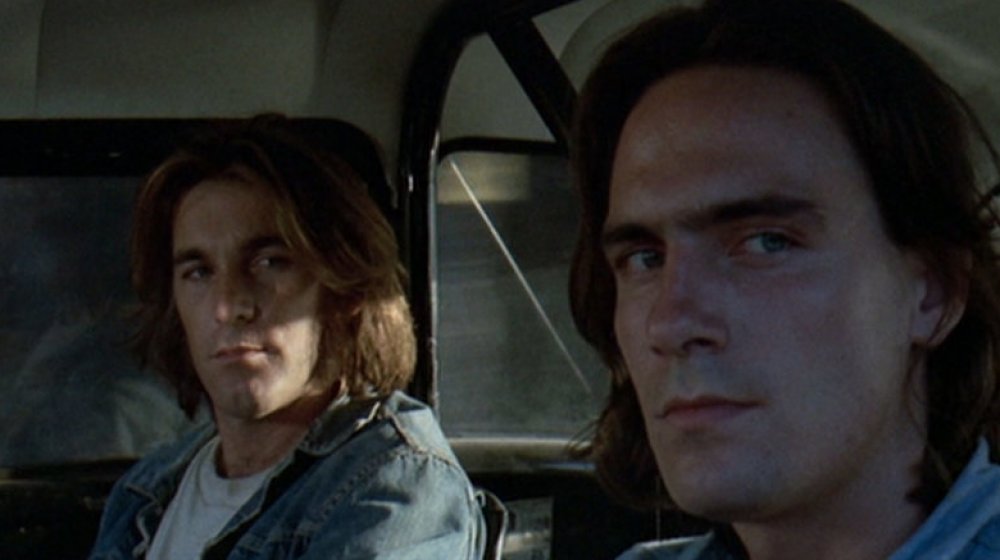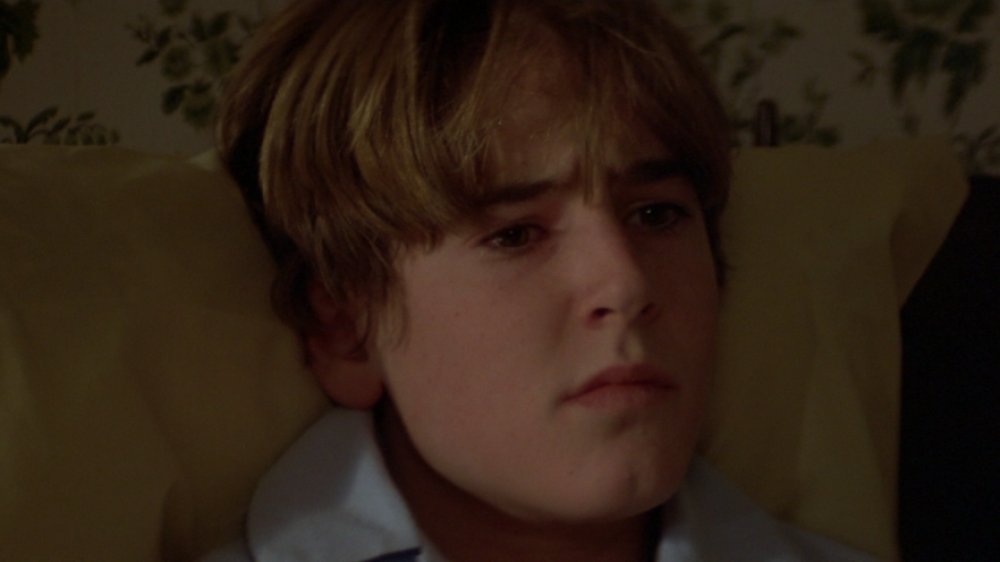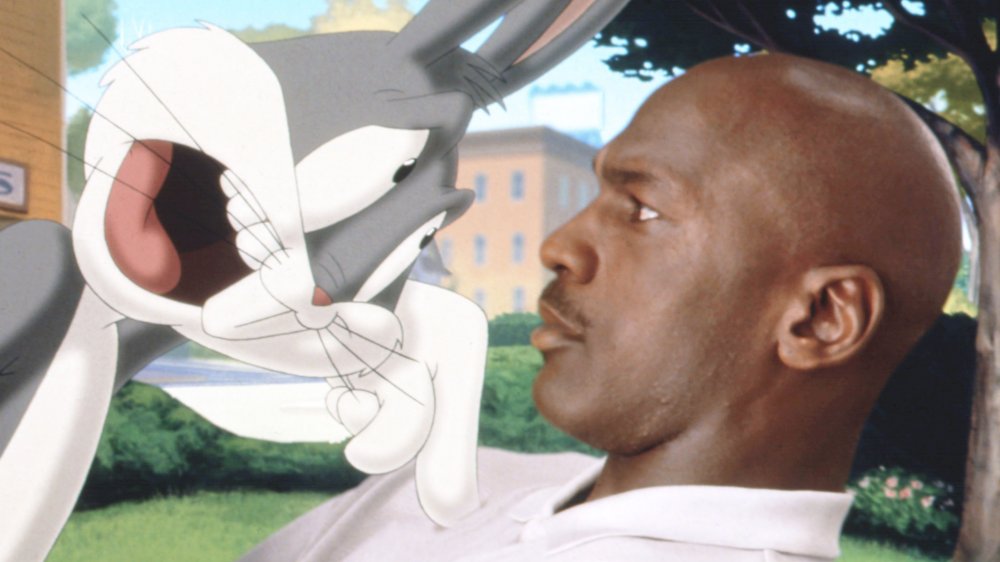Why These Actors' First Films Were Also Their Last
Only a lucky handful of the aspiring performers who arrive in Hollywood ever truly "make it" as actors. Through some magical combination of talent, charisma, hard work, and charming the right filmmaker or casting agent, these actors and actresses found the right role in a memorable or popular movie.
However, getting into the cast of a hit film is one thing. Expanding that achievement into a lasting career full of movies is something else entirely, and it requires a completely different skill set, it would seem. After all, the history of cinema is dotted with a few acting "one-hit wonders." Like bands that score one big hit song and then disappear into relative obscurity, some actors made it big with their first film, only for the second movie to never arrive.
So what's up with that? Well, their reasons are varied. Some walked away, others found better things to do, while some never got the chance to act again. Here are Hollywood's most notable actors whose debut films were also their swan songs.
Peter Ostrum's first and last film was Willy Wonka and the Chocolate Factory
When Roald Dahl's classic 1964 children's novel Charlie and the Chocolate Factory was adapted into a 1971 feature film, it would take just the right actor to play Charlie Bucket, the pure-hearted, poverty-stricken boy who wins a golden ticket to meet the mysterious and eccentric candymaker Willy Wonka and visit his surreal company headquarters. Fortunately, representatives of a nationwide talent search uncovered six-grader Peter Ostrum when he was acting in a children's theatrical production at the Cleveland Playhouse. The agents took his photo, recorded him reading from the Dahl novel, and a couple months later, he passed his screen test and flew to Germany to shoot the renamed Willy Wonka and the Chocolate Factory.
But a funny thing happened when the film hit theaters. It bombed. "The film died a quiet death. It had lukewarm reviews and people forgot about it," Ostrum told The Mirror, claiming that the film didn't become a beloved movie until it arrived on home video in the '80s. Because the film didn't do well and because he lived far away from Hollywood's pull, Ostrum retired from acting. "I wanted something more steady," he said, and he became a veterinarian.
Carrie Henn traded cinema for the schoolroom
James Cameron's 1986 movie Aliens is the rare sequel that ranks with its predecessor. It maintains the same mixture of terrifying horror and claustrophobic, sci-fi weirdness found in 1979's Alien, but it also adds a whole lot of action. After escaping the monstrous Xenomorph and spending decades in stasis, Ripley (Sigourney Weaver) is rescued by the Weyland-Yutami Corporation and informs them of some nasty alien eggs back on the terraformed colony of LV-426. Cut to that colony in the present, and it's eerily empty, except for an obviously disturbed kid named Newt. She's responsible for one of the most ominous and memorable lines in movie history: "They mostly come out at night. Mostly."
Nine-year-old actress Carrie Henn played Newt, holding her own against Weaver and the rest of the all-star cast. However, it's the only role she'd ever play in a film (reprising it, uncredited and briefly, in 1992's Alien 3). The American-born actress was living in England when Aliens filmed there — her father was in the U.S. Air Force, and that's where he was stationed. Not long after the shoot wrapped, Henn's father was ordered to report to California. "I contemplated going back into doing something with acting," Henn told AVP Galaxy, but she decided to be "a normal child" instead. "I wanted to kind of get into American life and make friends." Henn stayed on the school path and eventually became a teacher.
Klinton Spilsbury was never seen again after playing the Lone Ranger
When Hollywood tried to bring back the Lone Ranger in the early '80s with a movie called The Legend of the Lone Ranger, producers picked an unknown actor named Klinton Spilsbury to star. Prior to his big-screen debut, Spilsbury had landed just two bit parts, in the 1978 TV movie Suddenly, Love and an episode of Lou Grant. How the heck did he land such a plum role? He looked good in the Lone Ranger mask. "We had to find an actor whose eyes were not close together," producer Martin Starger explained to Entertainment Weekly.
Looking handsome was about all Spilsbury brought to the movie. According to co-star David Hayward, Spilsbury required cuts to the dialogue "because he was having trouble with the lines." Also, the actor couldn't act. Spilsbury requested that the movie shoot in sequence, as he had a difficult time performing a scene if he hadn't yet filmed the ones that came previously. Producers even had another actor dub Spilsbury's lines because his performance was so unpalatable. Despite it all, Spilsbury lorded over the Lone Ranger like an A-lister. "He came onto the set as if he was playing the role of a movie star," said co-star Christopher Lloyd.
Upon release in May 1981, critics savaged The Legend of the Lone Ranger. Janet Maslin of The New York Times called it "half-hearted adventure fare," and it bombed at the box office, too. Spilsbury, so unpleasant to work with, never acted again.
After School of Rock, Robert Tsai kept the music going
Richard Linklater's School of Rock was a starring vehicle for Jack Black, a place where the actor could show off his over-the-topic comic chops, as well as the rock 'n roll bona fides he'd earned as a member of parody metal band Tenacious D. Supporting Black, who played a private school substitute teacher who assembles a rock band of tweens, was an ensemble cast of child actors, including 13-year-old newcomer Robert Tsai as Lawrence, a kid so good at playing the keyboards that he earns the nickname "Mr. Cool."
Tickling the electronic ivories in School of Rock was ultimately Tsai's one and only acting credit. Clearly, he was cast for his musical abilities and not his acting experience because he ultimately chose to pursue music as his life's work. He played in an ensemble at Dartmouth and joined a dance troupe called Instant Noodle, which competed on MTV's America's Best Dance Crew.
Stephen Lea Sheppard's first and last film was The Royal Tenenbaums
Right around the new millennium, Stephen Lea Sheppard appeared in one little-watched but enduringly popular cult television show and one critically acclaimed, Oscar-nominated film. Few actors would ever have as perfect a resume as Sheppard does, although it's a brief list of projects (not counting an unaired pilot and a short film) with just Freaks and Geeks and The Royal Tenenbaums. In the former, Sheppard recurred in ten episodes as Harris Trinsky, an older, over-it nerd who advised the central freshmen "geek" characters. In the latter, Sheppard portrayed Dudley Heinsbergen, the silent test subject of Tenenbaum family-adjacent neurologist Raleigh St. Clair (Bill Murray).
After those big gigs, Sheppard kept auditioning for roles, but he didn't land any, and eventually he gave up, moved on, and found other things to occupy his time. In 2012, the Vancouver native told Maclean's that he'd moved back to Canada, where he worked as a cable company dispatcher and wrote video game reviews for Vice.
R. Darrell Hunter was cast in Pretty Woman thanks to his real-life job
Pretty Woman is the film that launched Julia Roberts to superstardom. It's also the movie that gave R. Darrell Hunter his first — and, to date, only — screen credit. He had a few lines in the blockbuster playboy-meets-prostitute rom-com as a limousine driver for Richard Gere's wealthy character, Edward Lewis. Hunter is credited as such, with a character name that's based on his own: "Darryl the Limo Driver."
The other half of that fictional identification is also based on something from Hunter's real life. At the time that Pretty Woman was in production, he was working as a limo driver. That's actually how he wound up in the movie. Hunter worked as a fringe member of the crew, chauffeuring Julia Roberts to the set one day. Perhaps because he could lend some realism to the role, director Garry Marshall put Hunter in the film as, yep, a limo driver. Hunter's sole acting appearance was a one-off lark, but hey, how many drivers get to show up in films with A-list superstars? Not many.
Frank Silva showed up in Fire Walk with Me thanks to an accident
Frank Silva's acting career began and ended with Twin Peaks, the weird and spooky ABC thriller that was all the rage in the early '90s. The central mystery of the series was "who killed Laura Palmer?" It turned out to be — major spoiler alert — Laura's father, under the control of a monstrous demon and agent of chaos named BOB. However, the character wasn't originally a part of Twin Peaks, and Silva wasn't initially in the cast.
While shooting a scene for the pilot from the point of view of Laura's mother (Grace Zabriskie) looking into her daughter's eerily empty room, Silva, in his job as set dresser, was making his final touches. And that's when Lynch got an idea. "And then suddenly he said, 'Wait a minute! Frank, get down to the base of the bed, crouch down, look through those wrought iron bars,'" Silva recalled. "And then they shot the POV, with me at the base of the bed. And it just sort of snowballed from there." And in a crazy coincidence, Lynch had also accidentally caught Silva's reflection in a mirror in a different shot. And thus, BOB was born.
After the series wrapped, Silva acted in just one movie — the 1992 Twin Peaks prequel movie Fire Walk with Me. Silva also picked back up his off-screen career, serving as property master on the 1992 indie movie One False Move. Even if Silva wanted to act again, he'd never get the chance. According to CBS News, he died at age 44 in 1995 of AIDS-related causes.
James Taylor and Dennis Wilson came and went with Two-Lane Blacktop
After making the quirky independent films The Shooting and Ride in the Whirlwind, Monte Hellman next directed Two-Lane Blacktop, a slow-moving, low-budget, downbeat 1971 movie about a couple of guys who wander the West in an old Chevrolet and hustle locals in drag race contests. The two main characters are known only as "the Driver" and "the Mechanic," although their faces are much more identifiable. They're portrayed by two of the era's major rock stars, in James Taylor and Beach Boys drummer Dennis Wilson, respectively.
While the film won tremendous critical praise, Two-Lane Blacktop would be the first and last time Taylor or Wilson would deign to experiment to star in a film. More than any other reason, both guys were too busy with their musical careers to do much acting. Taylor's career blew up in a big way around the time Two-Lane Blacktop hit theaters, and he graced the cover of Time that year and embarked on a tour he co-headlined with Carole King. Wilson's Beach Boys were in the middle of an especially fruitfully artistic period, releasing albums like Surf's Up, Carl and the Passions: So Tough, and Sunflower in the early '70s. Sadly, Wilson died in a drowning mishap in 1983.
Lucas Donat made his first and last film with Omen II: Damien
Lucas Donat may have had a particular inroad into show business because of his family. His father is actor Peter Donat (The X-Files, The Godfather Part II), and his mother is Michael Learned, best known for her Emmy-winning stint on the '70s television drama The Waltons. And in 1978, the 16-year-old actor made his screen debut in Omen II: Damien, the second entry in the Omen horror film series that tell the story of the unholy human spawn of Satan.
In Damien, the boy is just about to turn 13 and growing into his dark powers, something noticed by his family, particularly his cousin (and eventual victim), Mark. Lucas Donat portrayed Mark, which was the last time he'd act professionally in a film. Donat abandoned acting in favor of the business world. He's worked as the head of an advertising company called Tiny Rebellion, which helped make household names out of online service businesses like eHarmony, LegalZoom, and TrueCar.
Michael Jordan was one and done with Space Jam
It was almost guaranteed that Space Jam would become the blockbuster hit (and millennial cultural touchstone) that it became. The 1996 film dazzlingly combined live-action with animation (like its Oscar-winning, mega-hit predecessor, Who Framed Roger Rabbit) and starred the universally known and well-liked Looney Tunes characters — Bugs Bunny and Daffy Duck among them — in a rousing sports plot where the 'toons battled a group of nefarious aliens in basketball. Bugs and company win, thanks to their secret weapon: NBA superstar Michael Jordan.
Within months of Space Jam earning $230 million at the box office, Warner Bros. began pre-production on a sequel that found Jordan and his cartoon cohorts doing basketball battle with a new group of bad guys. However, Jordan eventually told the studio that he didn't want to make another Space Jam, and the whole thing was scrapped. Jordan was never an actor — apart from Space Jam, he'd starred in TV commercials and hosted an episode of Saturday Night Live. When his Space Jam commitments were satisfied, he returned to the NBA following a brief retirement and led the Chicago Bulls to three straight league titles.
